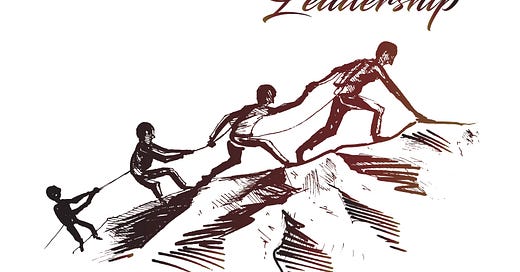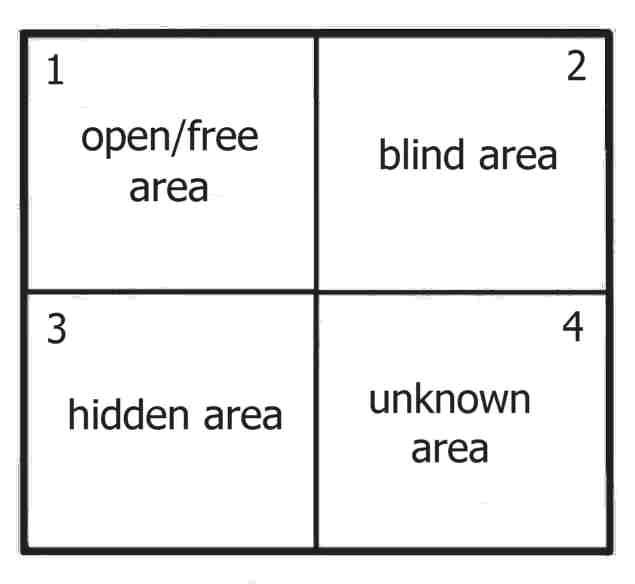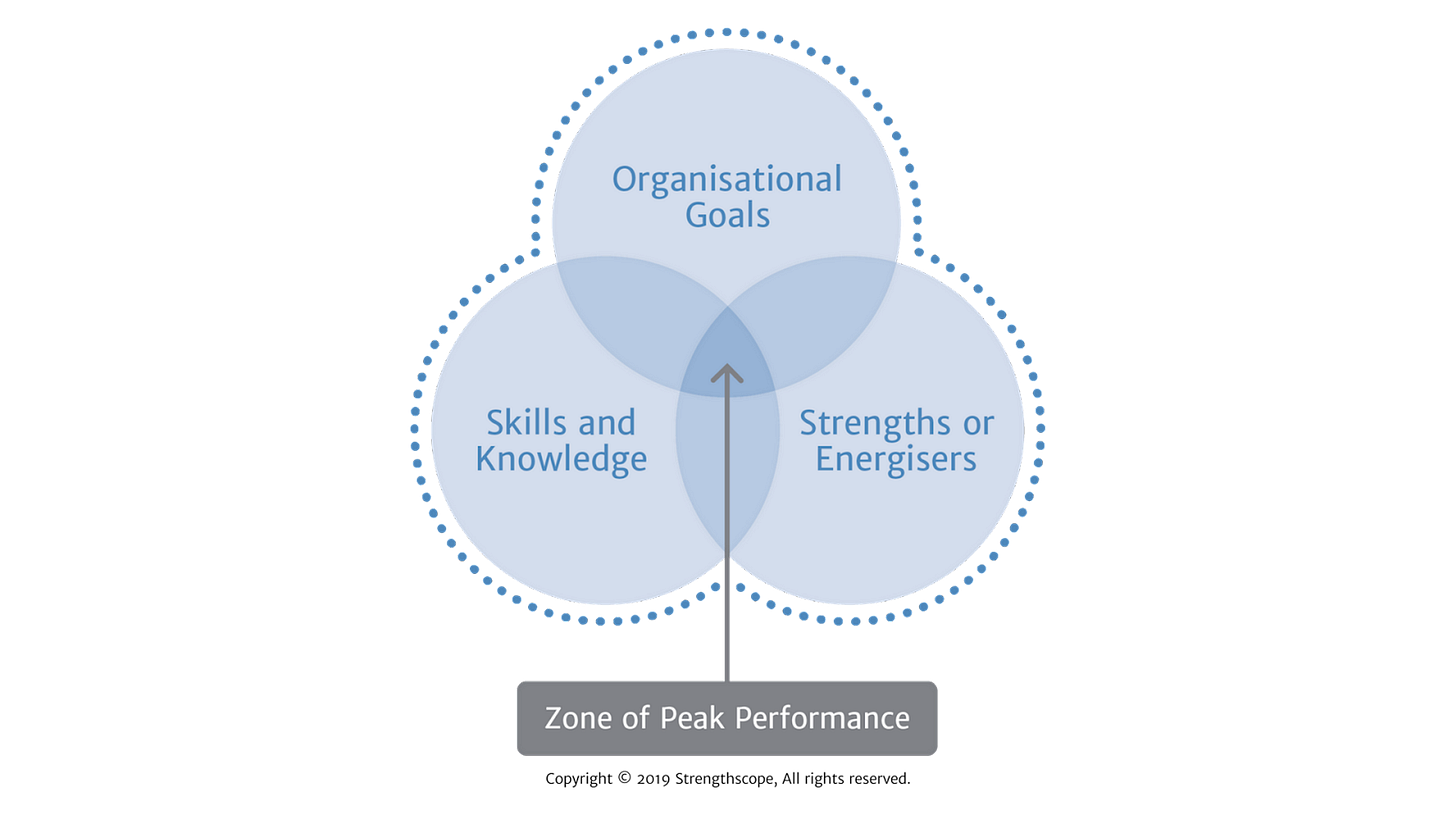CL #2: While Average People are Focusing on their Weaknesses, Successful People are doing this Instead
Andy Stanley Reveals The #1 Leadership Secret That Will Transform Your Life
Personal note: This is my first structured post and I am excited about this journey. I look forward to the lessons on managing a weekly newsletter while still working a 9-5 job. I am also curious on how the Newsletter is going to evolve in time. Let me know if you enjoyed this post and how I can improve it.
In this 2011 clip, Andy Stanley, Best-selling Author, Communicator and host of The Andy Stanley Leadership Podcast shares an important idea…
It is better to focus on exploiting your strengths than converting your weaknesses into strengths
For a long time in my life, I always focused on improving my weaknesses to become strengths.
In school, I spent time and energy improving my weak subjects at the expense of exploiting my strong subjects. Before you’re tempted to misunderstand me, there was nothing wrong on working on my weak subjects.
But the best I could achieve on my weak subjects was average instead of excellent. And this was okay but it discouraged me to the point that it affected my performance in my strong subjects.
This continued until I decided to study my results in different examinations where I noticed the following patterns:
I got higher overall scores when I scored the highest on my strong subjects, and averagely on my weak subjects
I got lower overall scores when I scored averagely on my strong subjects and higher on my weak subjects
My weak subjects could not compete with my strong subjects. If I wanted to get a higher competitive score, I had to ensure that I nailed my strong subjects first before working on the weak ones.
I then changed my approach to maximizing my scores in my strong subjects. My overall performance greatly improved and the newly acquired confidence positively influenced my weak subjects.
And I learnt my lesson:
You don’t have to be #1 in everything. If you identify and double down on your unique, unfair advantage (strength), you can win consistently
Andy Stanley communicates this in the short clip at the beginning of this article:
#1: We all have natural strengths
Everyone is born with a unique set of strengths but we are often blind to our own strengths because they seem to obvious.
We often don’t understand why someone would struggle with doing something while we can do it so well naturally.
Most often we don’t know and appreciate our strong areas.
To start finding our strengths, we need to ask those around us who know us well to give us candid feedback and also practice personal reflection.
Using the Johari Window to Understand Strengths and Blind Spots
The Johari Window is a framework used to develop better self-awareness of your conscious and unconscious biases
Understanding the Johari Window in relation to strengths:
Open/Free area: These are strengths that you know about yourself and that others know about you. These are evident strengths that you utilize and others appreciate you for.
Blind area: These are strengths that you aren't aware of, but that others know about you. For example, you might not realize that you're a great communicator until someone points it out to you.
Hidden area: These are strengths that you know about yourself, but that you keep hidden from other people. It could be that you don’t want to take responsibility for them or you’re just shy. Hidden strengths will not benefit you or others so it is important to reveal them.
Unknown area: These are strengths that are unknown to you and by others. You may have some untapped strengths that you and others need to discover. This is common among young people who have not had enough experiences to discover their strengths.
Since we have all a unique combination of natural strengths, we don’t need to compare ourselves or compete with others.
#2: We need to exploit our strengths
One of my significant statement from the video clip is:
“Your weaknesses will always be weaknesses in comparison to your strengths”
No matter how you strengthen your weaknesses, they will not match up to your strengths as you have also seen in my exeperience.
But what are strengths?
According to Strengthscope®, strengths are those qualities that energise you, what you are great at, or have the potential to become great at.
This isn’t the dictionary definition, this is different – so we’re talking about things that get you excited, engaged, passionate, enthusiastic… ENERGISED!
Utilizing your strengths helps you operate at your zone of peak performance where your strengths and skills are matched with what your organisation needs.
We need to stop winging it with our strengths, we must double down on them and excel.
The world is telling people to be unique, be true, be strong, and be themselves.
What could change if you could focus on utilising your strengths more?
#3: Great leaders lead using their strengths
Like Andy Stanley, you may have believed that great leaders are great at everything.
But just because they it seems like that on the surface, it is further from the truth.
Great leaders are great at a few things that they do well, then they let others do the rest. As a leader, you need to utilize just a few strengths to be successful.
One of my favorite quotes by Andy Stanley is:
“Don’t strive to be a well-rounded leader. Instead, discover your zone and stay there. Then delegate everything else. Thoughtful delegation will allow someone else in your organization to shine. Your weakness is someone’s opportunity. Leadership is not always about getting things done ‘right.’ Leadership is about getting things done through other people.”
When you focus on your strengths, you give others the opportunity to focus on their strengths.
You may be thinking to yourself:
“But I am not a leader”
“I am just a normal person doing my work”
Which begs the question:
Who is a Leader?
A leader is not defined by a position or a title.
A leader is not defined by their knowledge and insight.
Andy Stanley helps us define a leader in how they handle 3 things:
Unexpected Opportunity – Leaders are rarely the first person to see an opportunity, but they are often the first person to seize the opportunity. Leaders take action.
Unavoidable Adversity – Leaders are recognised through tough times that force them to come out of their shells. They inspire others to overcome adversity by taking positive action.
Unquestionable Calling – Leaders often feel an irresistible drive to serve others or do something significant in the word. Everyone has this internal feeling but what sets apart leaders is that they do something about it. They start serving the people around them.
Remember that these things don’t make you a leader…it is how you respond to them.
3 tips to exploit your strengths
#1. Discover your strengths
You can’t exploit strengths that you have not discovered.
Self Assessment: Complete a free online self assessment of your strengths. I recommend the High5 test where you will answer some questions and get a brief report listing your top five strengths, each with a short description.
Get assessed by others: Write a list of your top 5 friends who know you and ask them for your top 5 strengths.
Compare your findings and pick the top 3 strengths that you can exploit based on your current circumstances.
#2. Use your strengths to overcome your weaknesses
Your strengths and weaknesses are two sides of the same coin. You can use your strengths to overcome your weaknesses.
For example:
Let’s say you are good at researching and weak at selling. You can use your strong research skills to find the most effective ways of selling. Or reframe selling to a research activity where you are getting information from a prospect.
When you do this, people might think that you’re a great sales man while in fact you’re a great researcher.
#3. Look for more opportunities to practice your strengths.
Let’s say you are a great critical thinker but you tend to use this skill at work only. You can start using the strength in other areas such as solving problems at home, or even solving problems for others through a business.
That’s what I am doing with this newsletter:
I have a strength in research and curating content, I enjoy learning and developing others and I also enjoy breaking down ideas and concepts. But I have been using my strengths at work only and now I am challenging myself use these strengths to write consistently
Over to you my reader. What has been your experience in discovering and using your strengths?
3 things I found interesting this past week
Being held to high standards early in life pays off: Most careers benefit hugely from early rigour—but we have to be tough enough to embrace it. The best teachers and mentors hold you to a high standard, but they do it with compassion and empathy. We must be ready to accept and embrace tough lessons in our careers. They strengthen us and make us more adept and skilled.
Why giving to others makes us happy: Giving to others is also good for the giver. A research paper by Ashley Whillans and colleagues identifies three circumstances in which spending money on other people can boost happiness. Even during tough economic times.
The secret to improving your writing: On an interview with David Perrel, Sam Parr credits a practice called "copywork" for helping him build an 8-figure media business. He learned it from Benjamin Franklin, and it's the way we used to teach kids how to write. The method is simple: have people copy others' writing by hand. Here’s a link to the whole interview.
P.S. I will be sending out a Newsletter every Wednesday at 12:30pm EAT. Enjoy!







Wonderful post Joseph!
Very well writen indeed.
And the presentation is immaculate.